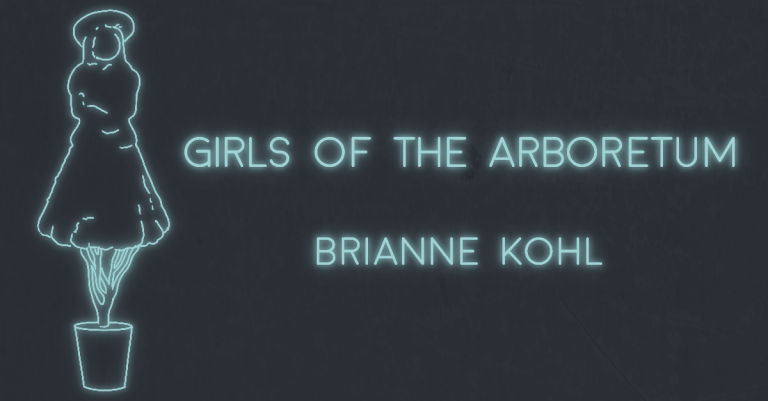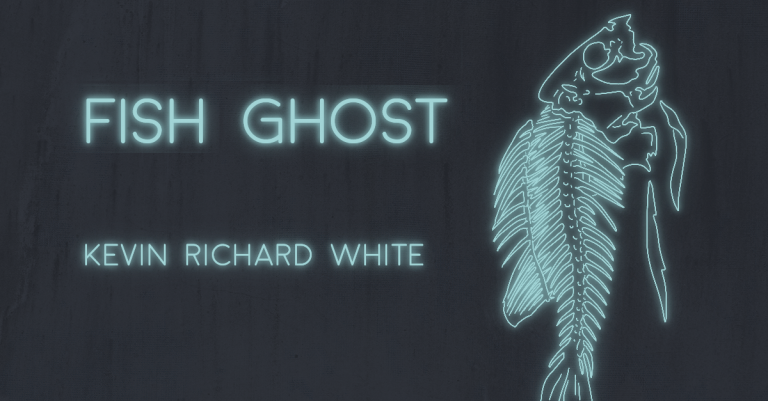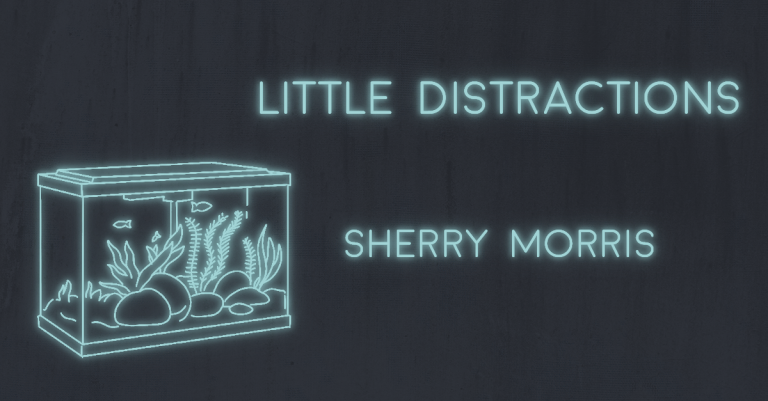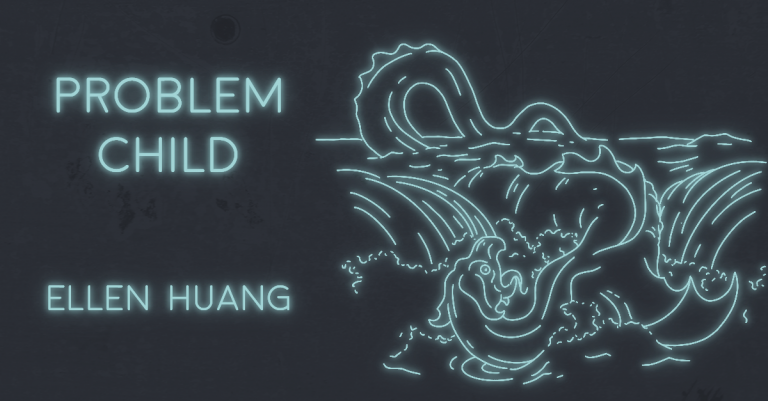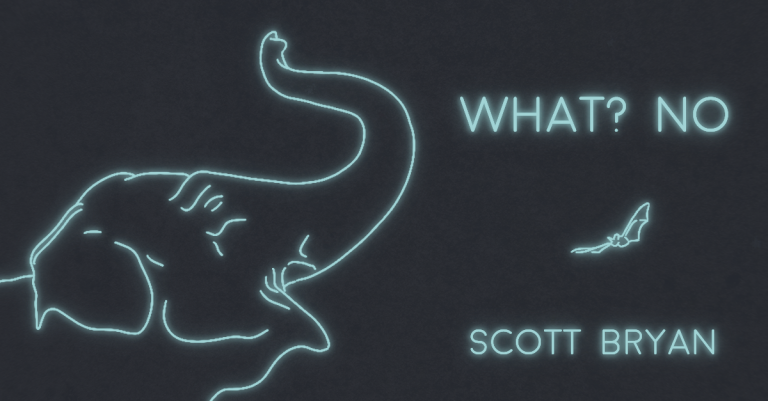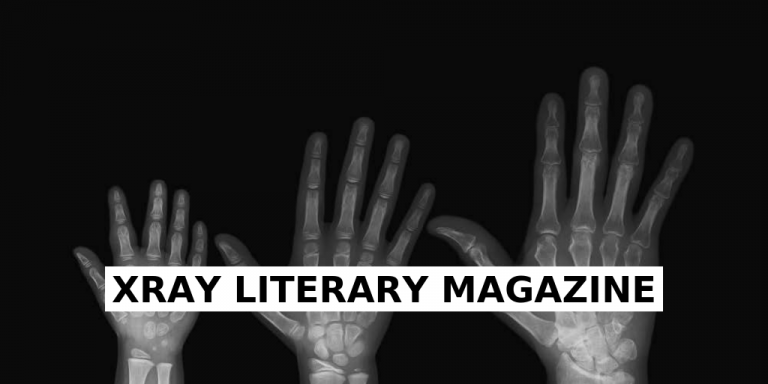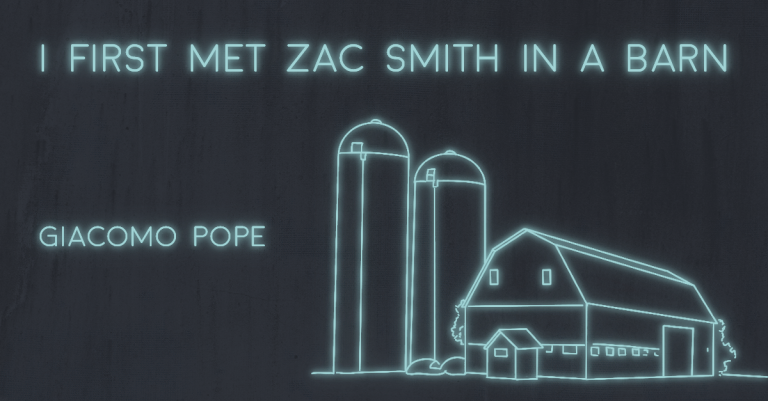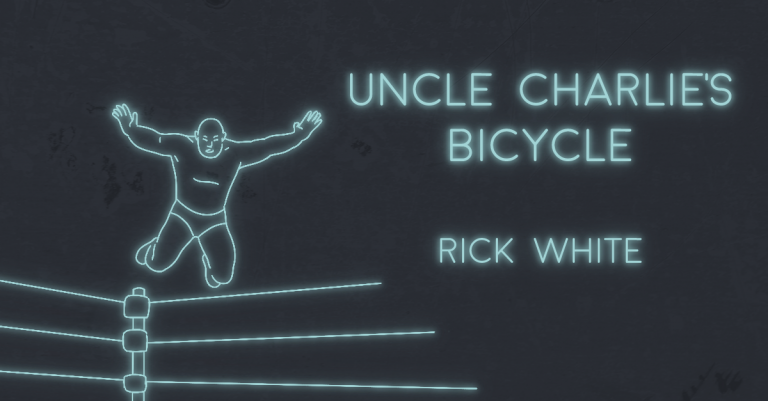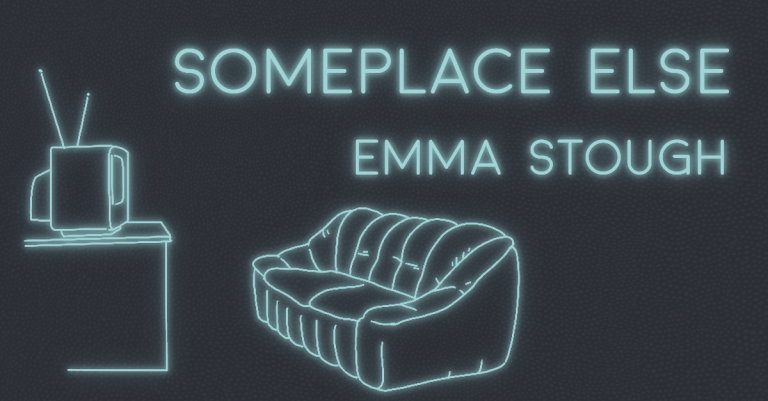
SOMEPLACE ELSE by Emma Stough
I am here now. Wide unexplained sky. How did I get here? Wait. Let’s stop. No, let’s start.
We are here now. Again, I think.
Purple wallpaper. My family huddled around the TV watching Seinfeld re-runs. I am squeezed between Aggressive Older Brother and Sensitive Younger Brother—I am boiling with discontent.
My family huddles like this for decades. The living room stays the same: plush green sofa (embedded with chips and cat hairs, is the cat still alive?) and purple wallpaper. Purple like the dregs of the bitter plum tea. Purple like the dying breath of stormy sunset. Purple like purple knows best.
Dark walls shelter my family forever. Safe.
I go to school because someone has to learn something. My best subject is shapes. I fall in love with shapes and refuse to let them out of my sight. I am put into an independent study because that’s how good I am. My mentor is a bristly old man called Stanley. Our relationship is loving because he trusts me and I am eager to be trusted. When I struggle or get angry he tells me to close my eyes and picture the most comforting thing I can imagine:
Purple wallpaper: Mom, Dad, Aggressive Older Brother, Sensitive Younger Brother, cat. Popcorn and silly TV glow splashed over our faces. We are full of understanding and empathy. We’ve been watching people playact for years. We pretend.
I get so good at shapes that they recommend me for a special program upstate. I pack all my belongings: secondhand copy of The Road, silverware, patchwork quilt that someone else’s grandmother made. When I am ready to leave, I find my family where I left them. Wrapped so lovingly in purple wallpaper. Safe together.
Goodbye, I tell them. I love you very much.
On the TV someone says, I didn’t think this was a serious relationship, you know. I didn’t think this would last.
What amount of distance is too much between who you used to be and who you will become?
In my special shapes program, I meet people that have never seen purple wallpaper. They are from faraway states and countries with long histories. They have beautiful faces and stories filled with grief. I want to hold them and listen to their breathing. They politely laugh at how serious I am.
I enter a strange shape of my own: lonely, discontent. I take up water aerobics and befriend women that have lost husbands and brothers to wars. I float in the water on my back, tracing the shape of the white-rafted ceiling, static rows of rectangular light. It makes me feel better to think the ceiling is likely never to fall into the water.
I call my family and Sensitive Younger Brother talks to me for hours and hours about the shows I’ve missed. He says, We noticed you left because your shape is missing from between our bodies. Where did you go?
I trace the cord of the phone between my fingers. It spirals boldly. This is a message.
I live in an apartment on the top floor, the fifth floor. It is small but sufficient, teeming with ferns and ill-matched patterns. Sometimes when the elevator is broken, I pause in the stairwell to think about what kinds of shapes might be waiting for me elsewhere. I start wearing mostly black and grey because I think that is the person I want to be.
There is a girl in my classes with lilac hair. Hints of purple wallpaper. She shows me new shapes; Honeysuckle-filled vase on bedside table, imprint of each head on each pillow, what saddened pit my heart becomes when I cry. Hold me carefully, she warns. I’m about to fall apart.
You have to be romantic to think that here will lead to anywhere else.
One day I graduate with accolades and handshakes from those who taught me. I feel incredibly brave. My family sends a card and apologizes that they couldn’t make it: The new season of their favorite cooking competition show aired, and they didn’t want to miss it. I write back a long letter full of new shapes and include a purple leaf I saved especially for them.
My lavender girl takes me to a fancy restaurant and asks if I plan to stay or go. I ask her if she would pose the same question to a river. She says if you feel like water then let me drink you in so you can hold up the shape of me. I ask her how she feels about cooking competition shows.
When I return to the purple wallpaper not much has changed—is there one less brother? The TV light has aged my parents beyond their years. They held me as a child and reach their hands out to me, draw me back into the glow. This is my heart, I say, and they look up at my purple-haired heart. They think she is another TV she is so beautiful. They are confused; is she pretending? They begin to feel unsafe. They begin to question. I try to reassure them. I point to all the reassuring, familiar shapes around us: circle lightbulb, rectangle picture frame, diamond clock, star lampshade, zigzag carpet, octagonal shelf, square TV. Square TV. Square TV.
It’s okay to look at something else, I tell them. I am whispering from my throat. It burns, suddenly raw. My family is scared of me. The purple wallpaper dims. Who is retreating from whom?
We leave that place. I find the shape of the sky—wide, changing, indefinable—reassuring. Like a warm wool coat. Wrap it around me.
My lover calls to me and says some things are mean to be held at a distance. Keep the purple, leave the rest. I guess that’s where we started. And where are we now?

